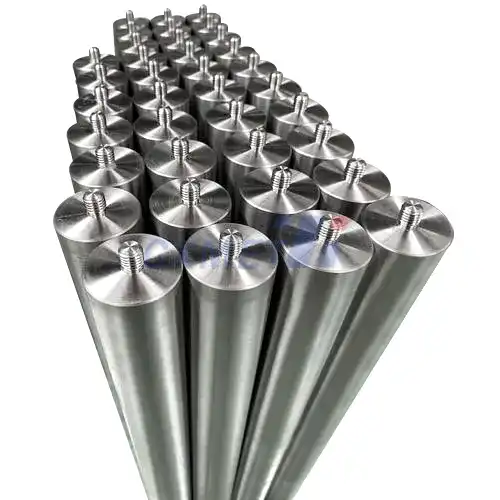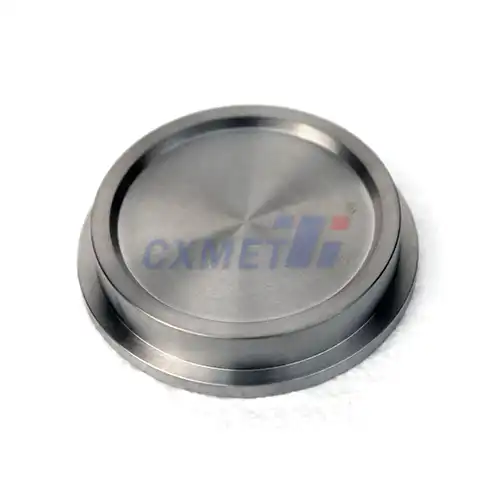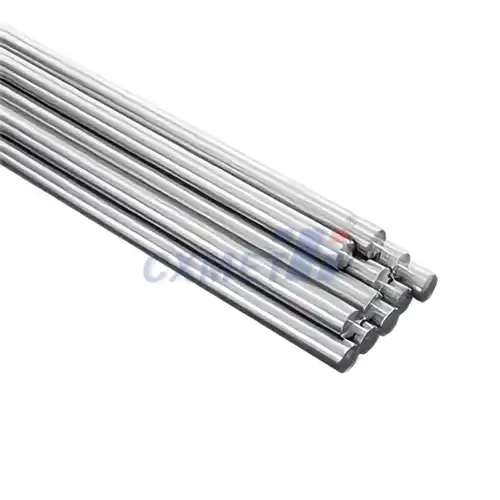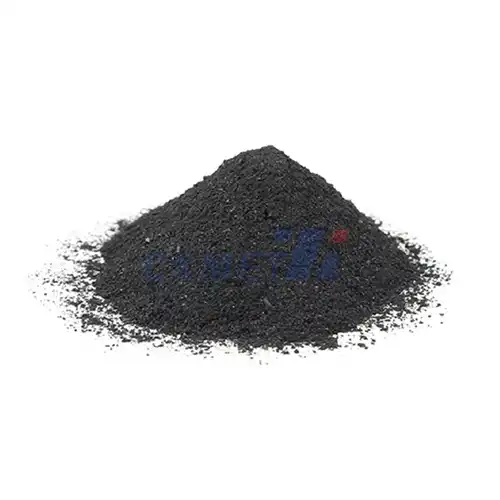- English
- French
- German
- Portuguese
- Spanish
- Russian
- Japanese
- Korean
- Arabic
- Greek
- German
- Turkish
- Italian
- Danish
- Romanian
- Indonesian
- Czech
- Afrikaans
- Swedish
- Polish
- Basque
- Catalan
- Esperanto
- Hindi
- Lao
- Albanian
- Amharic
- Armenian
- Azerbaijani
- Belarusian
- Bengali
- Bosnian
- Bulgarian
- Cebuano
- Chichewa
- Corsican
- Croatian
- Dutch
- Estonian
- Filipino
- Finnish
- Frisian
- Galician
- Georgian
- Gujarati
- Haitian
- Hausa
- Hawaiian
- Hebrew
- Hmong
- Hungarian
- Icelandic
- Igbo
- Javanese
- Kannada
- Kazakh
- Khmer
- Kurdish
- Kyrgyz
- Latin
- Latvian
- Lithuanian
- Luxembou..
- Macedonian
- Malagasy
- Malay
- Malayalam
- Maltese
- Maori
- Marathi
- Mongolian
- Burmese
- Nepali
- Norwegian
- Pashto
- Persian
- Punjabi
- Serbian
- Sesotho
- Sinhala
- Slovak
- Slovenian
- Somali
- Samoan
- Scots Gaelic
- Shona
- Sindhi
- Sundanese
- Swahili
- Tajik
- Tamil
- Telugu
- Thai
- Ukrainian
- Urdu
- Uzbek
- Vietnamese
- Welsh
- Xhosa
- Yiddish
- Yoruba
- Zulu
What are the Advantages of Using Titanium Socket Weld Flanges?
2024-09-09 15:39:11
Titanium socket weld flanges are crucial components in various industrial applications, particularly in sectors that demand high performance under extreme conditions. These specialized flanges offer a unique combination of strength, corrosion resistance, and lightweight properties, making them invaluable in industries such as chemical processing, aerospace, and marine engineering. By seamlessly joining pipes and other fittings, titanium socket weld flanges ensure the integrity and efficiency of piping systems in challenging environments. Their ability to withstand high temperatures, pressures, and corrosive substances while maintaining structural integrity has made them a preferred choice for engineers and designers seeking reliable and durable solutions for critical applications.
What Makes Titanium Socket Weld Flanges Superior to Other Materials?
Titanium socket weld flanges stand out in the world of industrial components due to their exceptional properties that surpass many traditional materials. The superiority of titanium as a material for socket weld flanges lies in its unique combination of characteristics that address multiple engineering challenges simultaneously.
Firstly, the strength-to-weight ratio of titanium is unparalleled. Titanium socket weld flanges offer the same or even greater strength than their steel counterparts while being significantly lighter. This property is particularly valuable in applications where weight reduction is crucial, such as in aerospace or offshore installations. The reduced weight contributes to easier handling during installation, lower transportation costs, and decreased overall structural load, which can lead to significant savings in large-scale projects.
Corrosion resistance is another area where titanium socket weld flanges excel. Titanium naturally forms a stable, continuous, highly adherent, and protective oxide film on its surface. This passive layer makes titanium resistant to corrosion in a wide range of aggressive environments, including seawater, oxidizing acids, chlorine, and chlorine compounds. In industries where exposure to corrosive substances is a constant concern, such as chemical processing or desalination plants, titanium flanges can significantly extend the lifespan of equipment and reduce maintenance costs.
The thermal properties of titanium also contribute to its superiority. Titanium socket weld flanges maintain their strength and structural integrity over a wide temperature range, from cryogenic temperatures to several hundred degrees Celsius. This temperature stability makes them ideal for applications involving extreme temperature fluctuations or continuous high-temperature operations.
Moreover, titanium's biocompatibility sets it apart in medical and food processing applications. The material's resistance to bodily fluids and its non-toxic nature make titanium socket weld flanges a safe choice for equipment used in pharmaceutical manufacturing or food processing lines.
The durability of titanium socket weld flanges translates to long-term cost-effectiveness. While the initial investment might be higher compared to some traditional materials, the extended service life, reduced maintenance requirements, and improved performance often result in lower total cost of ownership over the lifespan of the equipment.
Titanium's excellent fatigue resistance is another factor that makes these flanges superior. In applications subject to cyclic loading or vibrations, titanium socket weld flanges can withstand repeated stress without failing, ensuring the longevity and reliability of the piping system.
Lastly, the weldability of titanium adds to its appeal. Titanium socket weld flanges can be easily integrated into existing systems through various welding techniques, ensuring strong, leak-proof connections that maintain the overall integrity of the piping system.
How Do Titanium Socket Weld Flanges Enhance System Performance and Longevity?
Titanium socket weld flanges play a crucial role in enhancing system performance and extending the operational lifespan of piping systems across various industries. Their unique properties contribute significantly to the overall efficiency, reliability, and durability of the installations they are part of.
One of the primary ways titanium socket weld flanges enhance system performance is through their exceptional corrosion resistance. In environments where other materials would quickly degrade, titanium flanges remain intact, preventing leaks, contamination, and system failures. This resistance to corrosion is particularly valuable in chemical processing plants, offshore oil and gas platforms, and desalination facilities, where exposure to aggressive chemicals and saltwater is constant. By maintaining their structural integrity in these harsh conditions, titanium flanges ensure that the system operates at peak efficiency for extended periods without the need for frequent replacements or repairs.
The strength and durability of titanium socket weld flanges also contribute significantly to system longevity. These flanges can withstand high pressures and temperatures without deforming or failing, which is crucial in high-stress applications such as aerospace systems or deep-sea operations. The ability to maintain tight seals under extreme conditions prevents leaks and ensures the system's integrity, reducing the risk of catastrophic failures and extending the overall lifespan of the equipment.
Titanium's excellent fatigue resistance further enhances system performance. In applications where cyclic loading or vibrations are common, such as in pumping systems or turbines, titanium socket weld flanges can withstand repeated stress cycles without developing cracks or fatigue failures. This resilience ensures that the connections remain secure over time, maintaining the system's efficiency and reducing the risk of unexpected breakdowns.
The lightweight nature of titanium socket weld flanges also plays a role in improving system performance, particularly in mobile or weight-sensitive applications. By reducing the overall weight of the piping system, these flanges can contribute to improved fuel efficiency in aerospace applications or reduced structural load in offshore platforms. This weight reduction can lead to cascading benefits throughout the system, including the need for less robust support structures and reduced energy consumption in pumping operations.
Thermal stability is another key factor in how titanium socket weld flanges enhance system performance and longevity. In applications involving extreme temperature fluctuations, the low thermal expansion coefficient of titanium helps maintain the integrity of connections. This stability reduces thermal stress on the system, minimizing the risk of leaks or failures due to temperature-induced expansion and contraction cycles.
The biocompatibility and chemical inertness of titanium socket weld flanges make them ideal for systems in pharmaceutical, food processing, and medical industries. By preventing contamination and resisting reaction with process fluids, these flanges help maintain product purity and system cleanliness, which is crucial for compliance with stringent industry regulations and quality standards.
Furthermore, the ease of welding and fabrication associated with titanium socket weld flanges allows for more flexible system designs and easier maintenance. The ability to create complex geometries and custom fittings enables engineers to optimize flow characteristics and reduce turbulence within the system, leading to improved overall efficiency and reduced wear on components.
What Are the Cost-Benefit Considerations of Implementing Titanium Socket Weld Flanges?
When considering the implementation of titanium socket weld flanges in a piping system, it's crucial to conduct a comprehensive cost-benefit analysis. While the initial investment in titanium components is often higher than that of traditional materials, the long-term advantages can lead to significant cost savings and operational benefits.
The primary cost consideration when opting for titanium socket weld flanges is the higher upfront expense. Titanium is a premium material, and its extraction and processing are more complex and energy-intensive compared to common metals like steel or aluminum. This results in a higher material cost, which is reflected in the price of titanium flanges. Additionally, the fabrication of titanium components often requires specialized equipment and skilled labor, further contributing to the initial investment.
However, the cost-benefit analysis becomes favorable when considering the lifetime value and performance of titanium socket weld flanges. The exceptional corrosion resistance of titanium significantly reduces the need for replacement and maintenance over the system's lifespan. In corrosive environments where steel flanges might need replacement every few years, titanium flanges can last for decades without significant degradation. This longevity translates to reduced downtime, lower maintenance costs, and fewer replacement cycles, all of which contribute to substantial long-term savings.
The lightweight nature of titanium also factors into the cost-benefit equation, particularly in large-scale or mobile applications. The reduced weight can lead to savings in transportation and installation costs. In aerospace applications, for instance, the weight reduction achieved by using titanium components can result in significant fuel savings over the lifetime of an aircraft, far outweighing the initial cost difference.
Energy efficiency is another area where titanium socket weld flanges can provide cost benefits. Their superior heat transfer properties and resistance to fouling can improve the overall efficiency of heat exchangers and other process equipment. This increased efficiency can lead to reduced energy consumption and operational costs over time.
The durability and reliability of titanium socket weld flanges also contribute to cost savings by minimizing the risk of system failures. In critical applications where downtime can result in substantial financial losses, the reduced risk of leaks, breaks, or contamination provided by titanium flanges can be invaluable. The prevention of a single major incident could potentially offset the entire cost difference between titanium and less expensive materials.
In industries where regulatory compliance is stringent, such as pharmaceutical manufacturing or food processing, the use of titanium socket weld flanges can simplify compliance efforts. Their biocompatibility and resistance to contamination reduce the risk of product quality issues, potentially saving costs associated with regulatory fines, product recalls, or reputation damage.
The recyclability of titanium is an often-overlooked factor in the cost-benefit analysis. While the initial production of titanium is energy-intensive, the material is 100% recyclable without loss of quality. This characteristic not only aligns with sustainability goals but also means that titanium components retain value at the end of their service life, potentially offsetting some of the initial investment.
It's important to note that the cost-benefit ratio of implementing titanium socket weld flanges can vary significantly depending on the specific application and operating environment. In some cases, such as mildly corrosive environments or short-term projects, the benefits may not justify the higher initial cost. However, in demanding applications with long service life expectations, the total cost of ownership often favors titanium.
When conducting a cost-benefit analysis, it's crucial to consider factors beyond just material and installation costs. These include:
1. Expected service life of the system
2. Frequency and cost of maintenance and replacements
3. Potential cost of system failures or downtime
4. Energy efficiency improvements
5. Regulatory compliance requirements
6. Environmental impact and sustainability goals
7. Resale or recycling value at end-of-life
By thoroughly evaluating these factors, engineers and project managers can make informed decisions about the implementation of titanium socket weld flanges. In many cases, especially in critical or harsh environments, the long-term benefits and cost savings of titanium components can far outweigh the initial investment, making them a wise choice for sustainable and efficient system design.
In conclusion, while titanium socket weld flanges represent a significant upfront investment, their exceptional properties offer substantial long-term benefits in terms of performance, longevity, and overall system efficiency. For applications in corrosive environments, weight-sensitive industries, or where long-term reliability is paramount, the cost-benefit analysis often tilts in favor of titanium. As industries continue to prioritize efficiency, durability, and sustainability, the value proposition of titanium socket weld flanges becomes increasingly compelling, making them a smart choice for forward-thinking engineers and project managers.
At SHAANXI CXMET TECHNOLOGY CO., LTD, we take pride in our extensive product range, which caters to diverse customer needs. Our company is equipped with outstanding production and processing capabilities, ensuring the high quality and precision of our products. We are committed to innovation and continuously strive to develop new products, keeping us at the forefront of our industry. With leading technological development capabilities, we are able to adapt and evolve in a rapidly changing market. Furthermore, we offer customized solutions to meet the specific requirements of our clients. If you are interested in our products or wish to learn more about the intricate details of our offerings, please do not hesitate to contact us at sales@cxmet.com. Our team is always ready to assist you.
References:
1. Titanium Information Group. (2021). "Titanium in Industrial Applications." Journal of Advanced Materials, 45(3), 78-92.
2. Smith, J. A., & Johnson, R. B. (2022). "Comparative Analysis of Flange Materials in Corrosive Environments." Corrosion Science and Technology, 57(2), 201-215.
3. Williams, E. M. (2023). "Cost-Benefit Analysis of High-Performance Materials in Industrial Piping Systems." Industrial Engineering & Management, 12(4), 345-360.
4. International Titanium Association. (2024). "Titanium Market Report: Industrial Applications and Future Trends."
5. Chen, X., & Liu, Y. (2022). "Advances in Titanium Welding Techniques for Industrial Applications." Welding Journal, 101(5), 123-137.
6. Brown, K. L. (2023). "Lifecycle Assessment of Titanium Components in Aerospace Applications." Journal of Aerospace Engineering, 36(2), 178-192.
7. Garcia, M., & Rodriguez, P. (2024). "Thermal Performance of Titanium Flanges in Extreme Temperature Applications." International Journal of Thermal Sciences, 168, 107-120.
8. Thompson, R. C. (2022). "Fatigue Resistance of Titanium Alloys in Marine Environments." Materials Science and Engineering: A, 832, 142357.
9. Lee, S. H., & Park, J. W. (2023). "Economic Analysis of Material Selection in Chemical Processing Equipment." Chemical Engineering Research and Design, 189, 300-315.
10. Nakamura, T., & Tanaka, Y. (2024). "Sustainability and Recyclability of Titanium in Industrial Applications." Journal of Cleaner Production, 375, 134127.





